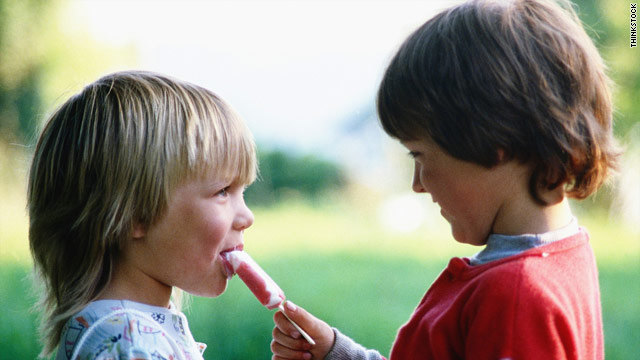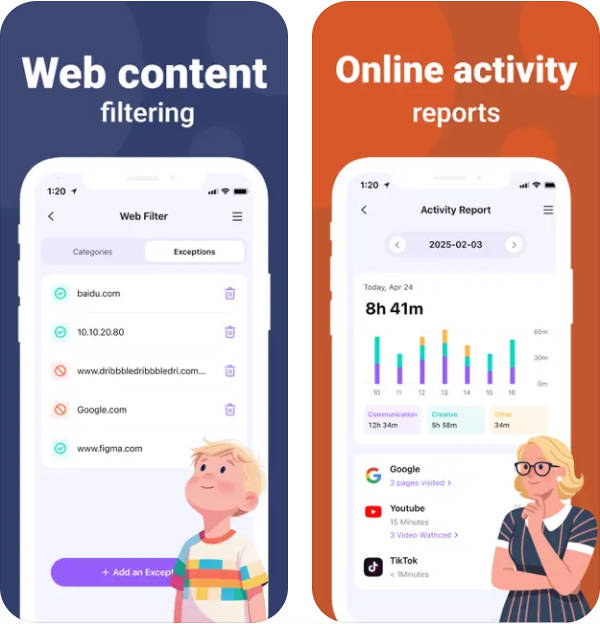How Parents Deal With the Problem of Young Kids Having Sex
How to Deal With the Problem of Young Kids Having Sex
ALL TOPICS
- Child Monitoring Apps
- Snapchat Monitoring
-
- How to monitor Snapchat for free?
- How to monitor Snapchat on iPhone for free?
- How to monitor Snapchat remotely or without their phone
- Useful ways to monitor Snapchat without jailbreak
- Snapchat tracker how to track on your kids Snapchat
- Use Snapchat tracker to track on your kids' Snapchat
- How can parents monitor Snapchat?
- Other Tips of Child Monitoring
Dec 12, 2025 Filed to: Phone Monitoring Proven solutions
Are you worried about your child's sex education?
Transition and experimentation are the hallmarks of adolescence. While the family is the most important influence when children reach this life stage, the kids will prefer receiving societal norms and ideals from mass media. Other external entities, such as peers and the school environment, can also play a vital role in determining how your child behaves. Both internal and external factors can brood wrong behavior in young people.
One of the problems parents have to deal with is the possibility of their little kids having sex during adolescence. Unfortunately, research has shown that children are likely to maintain the behavior they began developing during adolescence into adult life. That's why parents need to put measures in place to ensure their kids develop the right habits.

While the bodies of the children may be ready for the act at this stage, their minds might not be. This is because kids at this age have a limited understanding of the subject of sex. Many of them depend on the information (a good portion of which may be wrong) from their peers and the digital media to make decisions.
The impacts of young children having sex are dire. Unplanned pregnancies, contracting sexually transmitted diseases, and being on the receiving end of emotional pain are just some of the problems that kids may encounter after the act. For the parent, it can be disappointing and nerve-wracking to discover that your child is sexually active. Fortunately, by arming yourself with the right information and materials, you can keep your kids from the dangers of having sex at an inappropriate age. Moreover, you can help your children properly in case they are already sexually active.
Table of the Content
How to know if your child is exploring sex-related issues?
Sexual development starts from the moment a child is born. It involves physical changes and the values, beliefs, and knowledge the kids gain throughout life. From a very young age, your child will begin exploring sex-related issues. While most sexual behaviors in kids and adolescents are nothing unusual, others are not. To help and guide their children in the right direction, parents should know what is normal and what is not. Here is how to know if your kids are exploring issues to do with sex.

1. Pay attention to their daily behavior
As kids grow, parents should carefully observe them to ensure they are not doing abnormal things. However, some sexual behaviors are just normal in children and shouldn't surprise parents at all. For example, young and preschool-aged kids are often curious about their bodies. This contributes to their immodesty as they may show off or touch sexual parts of their bodies in public without feeling shameful. However, as they mature, they will naturally start becoming more modest. At some age, these kids will begin doing most things in private. Here some normal behaviors in children.
- Touching genitals publicly or in private, whether purposefully or not. School-aged children do it in private.
- Trying to see people who are nude or undressing.
- School-aged children viewing or listening to sexual material from TV shows, movies, games, and other media.
- School-children interacting with pornographic materials.
- Children aged between four and six talking about sexual body parts and using foul language.

However, some behaviors are beyond the ordinary, and parents should intervene immediately once they discover this. Instead of waiting until you catch your young kids having sex red-handed, it is better to know the signals that point to unusual behavior. Here are some sexual behavior problems in kids:
- When a school-age or older child exhibits an excessive preoccupation with sexual activity, body parts, and words.
- When a school-age or older child publicly displays his/her private parts repeatedly.
- Putting or inserting objects in private parts.
- Tenacious involvement of a child in sex play with their peers even after the parent warning against it severally.
- Pre-school or school-age kids mimicking or attempting to have sex with pets, animals, toys, and other children.
- Performing sexual acts with other children who are younger or are at a younger developmental stage mentally or socially.
- Requesting peer members or adults to engage in sexual activity.
- Tricking, putting pressure on or coercing peers or younger children to engage in sexual activity.
- Touching private parts of unfamiliar adults.
2. Pay attention to their online behavior
The digital world has revolutionized parenting in many ways. For instance, doing your family chores is no longer hectic. You can engage your kids with an online game on the smartphone while washing your dishes. However, media sources are also a problem when it comes to raising kids. It is no longer unusual to imagine the possibility of young children having sex prematurely.

Most kids get most of their sexual education from games, social apps, videos, and websites that have information about the topic. Sadly, the lessons from these sources are often wrong. Besides, the sexual values that digital media conveys is often inappropriate for the young generation. That is why the majority of little kids having sex prematurely never know the consequences of doing so. They only regret later.
As a parent, you should pay attention to the online behaviors of your kids. Take time to investigate the ratings of the movies and television shows they watch, the games they play, and the websites they visit. When possible, participate in the online activities your children engage themselves in. This way, it is easy to notice unusual behavior, such as:
- Continuous and secretive reading and viewing of explicit material from websites after you have warned against it and caught them red-handed.
- Playing games that have an R18+ rating on them.
- Chatting with peers or adults using explicit language.
- Deleting browsing history.
What should parents do if you find your child is exploring sexual behavior?
If you found your child exploring sexual behavior, don't overreact. Even if you caught your little kids having sex or masturbating, never freak out. There are better ways of reacting to the situation. Acting irrationally can cause more harm than good in your children. Here are important tips to follow if you find your child exploring sex-related issues.
1. Understand
Often, children who explore sexual behavior do so innocently. For example, kids between two and five love playing doctor. Understanding this can go a long way in ensuring you do not react the wrong way, causing your child unnecessary panic or shame.
2. Communicate
Proper communication is vital when it comes to keeping your children safe. Freaking out after finding your child doing something wrong won't help. Begin teaching your kids what's acceptable and what's not early enough. Establishing yourself as open to discussions about sex will help the young ones feel comfortable about sharing their feelings and experiences.

3. Help and guide
For parents to teenagers, proper help and guidance will protect little ones from disaster. At the age, the concept of young kids having sex isn't new to their ears. Therefore, they need your guidance to protect themselves against wrong relationships and access to inappropriate content online. Empower them to properly analyze the risks associated with certain decisions.
4. What FamiSafe Can Help?
If you are worried about the possibility of your little kids having sex before they understand it fully, then FamiSafe can help. The parental control app has several features that parents can make use of to protect their kids from the dangers of peer pressure and early exposure to inappropriate content. Here are some benefits you will get from the software.
- Web filtering. Using FamiSafe's web filter, you can create a safe environment for your kids and allow them to only access age-appropriate content. Besides, parents can remotely view their children's browsing history and check if their little ones are surfing the web in incognito mode. While children can secretly visit harmful sites and delete the history, the web filter will help the parent unearth all the necessary information.

- Detection of suspicious content. FamiSafe's suspicious text monitoring ability helps parents know the types of messages their kids receive via YouTube and social media apps. You can create offensive, rude, foul, or demeaning terminologies on your device and receive real-time alerts whenever the app detects suspicious words on the devices of your children.
- Detection of suspicious photos. With FamiSafe, you can easily detect signs of online sexual harassment and addiction to pornography in your children. The app detects unsuitable photos or images on your kid's device, such as nude selfies, porn photos, or pictures of young kids having sex. It also sends real-time alerts to the parent's device, including the photos your children have or make.
- Monitor kids' online behavior
- Block explicit content
- Alert for risky searches
- Track chat for sexual content
- Support healthy boundaries
Conclusion
Adolescence is a critical period where parental guidance is more important than ever. While it's natural for children to be curious, the risks associated with little kids having sex or accessing inappropriate content are real. By staying vigilant about behavioral changes and online activities, parents can intervene before issues escalate. Open communication and understanding are your best tools for guiding your children. Furthermore, utilizing technology like FamiSafe gives you the oversight needed to protect them from digital dangers, ensuring they grow up with healthy values and boundaries.



Moly Swift
staff Editor